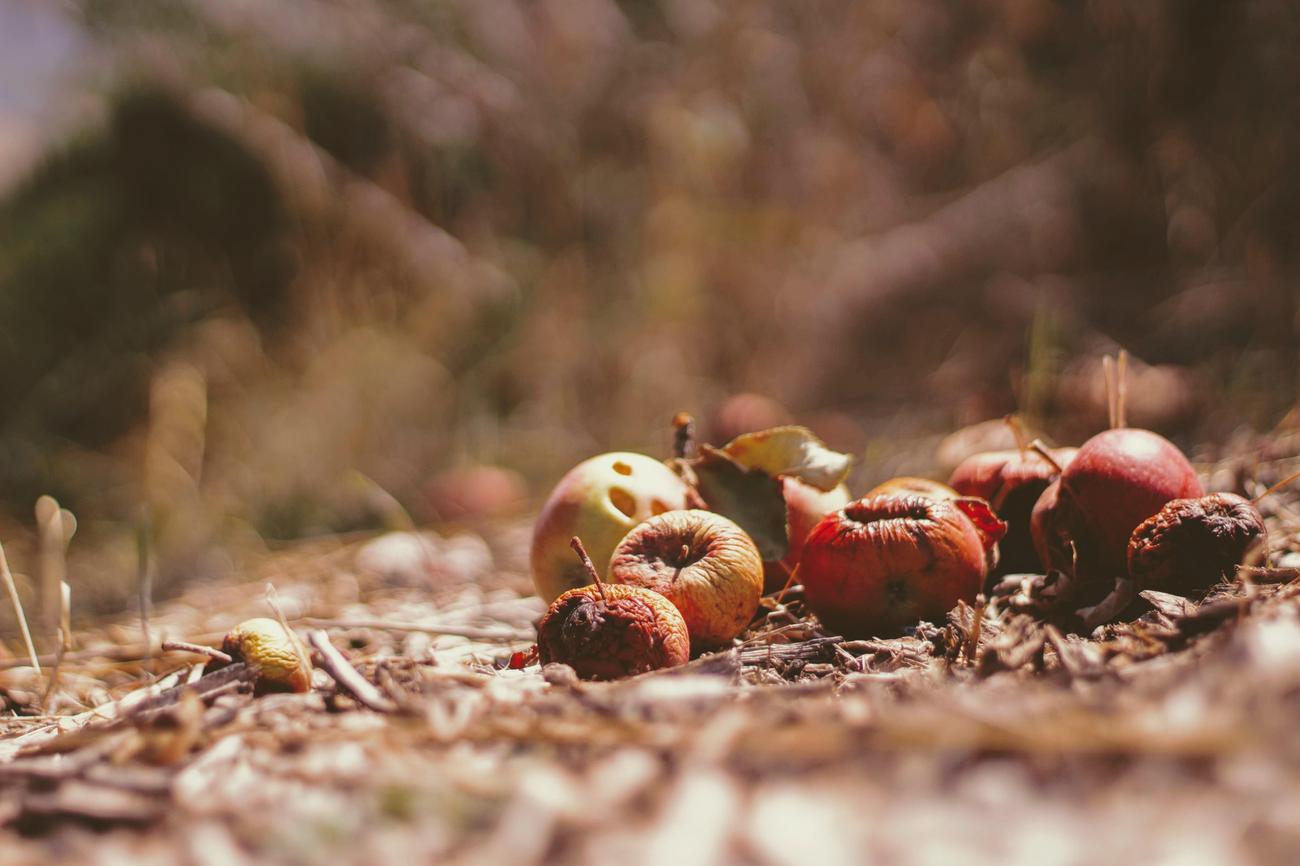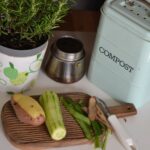In today’s world, where sustainability has become a buzzword, there is one practice that often goes unnoticed but holds immense power in our quest for a greener future – composting. As we strive to reduce waste and minimize our carbon footprint, composting emerges as a vital component of sustainable living. This article aims to shed light on the importance of composting, exploring its role in waste management, soil enrichment, and the overall health of our planet. Join me on this journey as we uncover the secrets behind this simple yet powerful concept, and how it can revolutionize our approach to environmental preservation.

The Importance of Composting
Composting plays a vital role in sustainable living by transforming organic waste into a valuable resource for our environment. It harnesses the power of nature to recycle materials that would otherwise end up in landfills, causing pollution and wasting valuable resources. But why is composting so important? Let’s explore its key benefits and how it contributes to a greener future.
Reducing Pollution and Reusing Nutrients
When organic waste breaks down in landfills, it produces harmful greenhouse gases like methane. By composting this waste, we can significantly reduce methane emissions and their impact on climate change. As microorganisms like bacteria, fungi, and protozoa transform food scraps and yard waste into compost, they create a nutrient-rich fertilizer that can be used to enrich the soil. Instead of relying on chemical fertilizers, composting provides a natural way to restore and sustain soil health, reducing the need for harmful synthetic inputs.
Composting not only reduces pollution but also reuses valuable nutrients, promoting a healthier environment for all.
A Helping Hand during COVID-19
During the COVID-19 pandemic, composting has gained even more significance. With many people staying at home and cooking more meals, food waste has increased. By composting our leftovers and food scraps, we can effectively manage this waste, avoiding overcrowded landfills and minimizing the potential spread of diseases. Composting offers a safe and sustainable solution to the challenges posed by the pandemic.
Boosting Soil Health and Resilience
Composting isn’t just about waste management; it’s about nurturing the soil and supporting the growth of healthy plants. When we apply compost to our gardens or agricultural fields, we introduce essential nutrients and beneficial microbes. These microscopic organisms improve soil fertility, making it more resilient to pests, diseases, and climate stress. Additionally, compost helps the soil retain moisture, reducing water consumption and preventing runoff. By enriching the soil, composting ensures that our crops and plants thrive in a sustainable and natural way.
Composting truly acts as a catalyst for healthy and resilient plants, promoting a vibrant and robust ecosystem.
Saving Money and Cutting Waste
Did you know that composting can even save you money on groceries? By tracking and reducing food waste, you can limit unnecessary expenses and contribute to a more sustainable food system. Composting allows us to harness the value of discarded food and turn it into nourishment for the soil, closing the loop and minimizing waste. It’s a win-win situation for both your wallet and the environment.
Reducing Landfill Waste and Carbon Emissions
Composting significantly reduces the amount of trash that ends up in landfills. By diverting organic waste from these sites, we not only conserve valuable space but also reduce the production of harmful greenhouse gases. The composting process doesn’t produce methane like landfills do, making it a more environmentally friendly option. Moreover, composting can eliminate the need for chemical fertilizers, further reducing our carbon footprint and promoting a healthier planet for future generations.
Promoting Higher Crop Yields and Environmental Sustainability
When we compost, we provide the soil with the nutrients and microbial activity necessary for optimum plant growth. This translates into higher crop yields and healthier plants. By embracing composting, we can enhance agricultural productivity while reducing our reliance on chemical inputs. This sustainable approach ensures that we can feed the growing global population while safeguarding the environment.
Composting holds the key to a sustainable and productive agricultural future, benefitting both our planet and our plates.
Embracing Composting in Daily Life
Composting isn’t just a practice for large farms or industrial operations; it’s something everyone can do at home. Setting up a compost bin or pile in your backyard allows you to actively participate in sustainable waste management. By composting your kitchen scraps and yard trimmings, you contribute to a circular economy, where waste transforms into valuable resources. It’s a small step that can make a big difference in reducing waste and preserving our environment.
In conclusion, the importance of composting cannot be overstated. It offers a wide range of environmental and economic benefits, from reducing pollution and reusing nutrients to saving money and cutting waste. By embracing composting as a vital component of sustainable living, we can contribute to a greener future and create a healthier planet for generations to come.
Let’s embrace composting and unlock the immense potential it holds for sustainable living and a brighter future.
Here is an example of an active internal link using the given anchor and URL in Hugo syntax:
“
Are you wondering what can be composted? Composting is not only a great way to reduce waste, but it also helps create nutrient-rich soil for your plants. By composting organic materials such as fruit and vegetable scraps, coffee grounds, and yard waste, you can contribute to a healthier environment and a more sustainable future. Click here to discover a comprehensive list of items that you can compost!
“
Remember to replace the URL and anchor with the actual URLs and keywords in your website.
FAQ
Question 1:
What is composting and why is it important?
Answer 1:
Composting is a biological process that transforms organic waste into a plant-available fertilizer. It is important because it reduces pollution, reuses nutrients, saves inputs for agricultural production, and helps recover the environment.
Question 2:
How does composting contribute to environmental sustainability?
Answer 2:
Composting turns food into compost through the work of microorganisms like bacteria, fungi, and protozoa. This enriches the soil with nutrients and microbes, improving its fertility and health. It also helps plants grow stronger and more resilient to pests, diseases, and climate stress. Composting conserves water by increasing the soil’s ability to hold moisture and prevent runoff. Additionally, composting significantly cuts down on the amount of trash in landfills, reduces costs and carbon emissions, and reduces methane emissions.
Question 3:
Can composting save money on groceries?
Answer 3:
Yes, composting can help save money on groceries. By tracking and reducing food waste, individuals can reduce their grocery expenses. Composting also promotes higher crop yields and healthier plants, leading to potential savings on produce.
Question 4:
Is composting a sustainable waste management practice?
Answer 4:
Yes, composting is a sustainable waste management practice. It reduces the impact of wasted food by feeding the soil and promoting environmental sustainability. Composting at home or on a larger scale helps divert organic waste from landfills and contributes to a greener future.
Question 5:
How does composting support sustainable living during the COVID-19 pandemic?
Answer 5:
Composting can play an important role during the COVID-19 pandemic. It reduces the dependence on chemical fertilizers and supports the recovery of the environment. With many people spending more time at home, composting provides an opportunity to practice sustainable waste management and contribute to a healthier planet.
- Unlock Water’s Symbolism: A Cross-Cultural Exploration - April 20, 2025
- Identify Black and White Snakes: Venomous or Harmless? - April 20, 2025
- Unlocking Potential: Origins High School’s NYC Story - April 20, 2025















